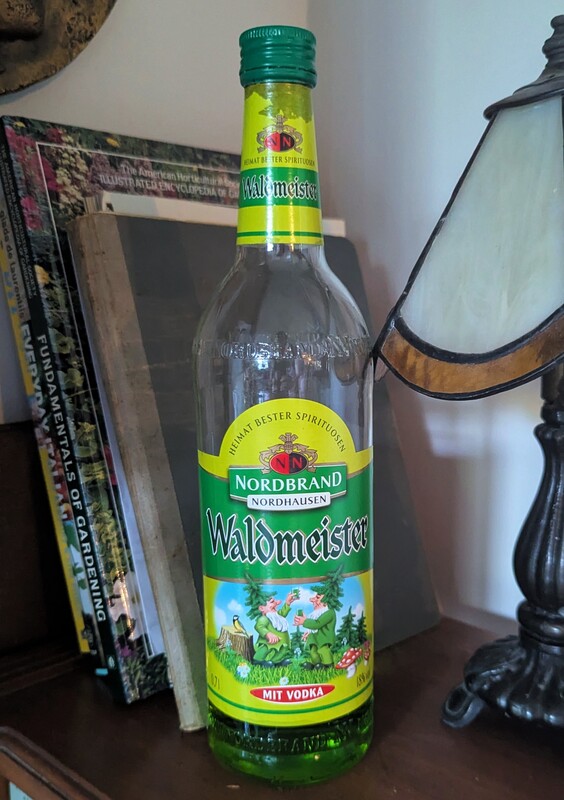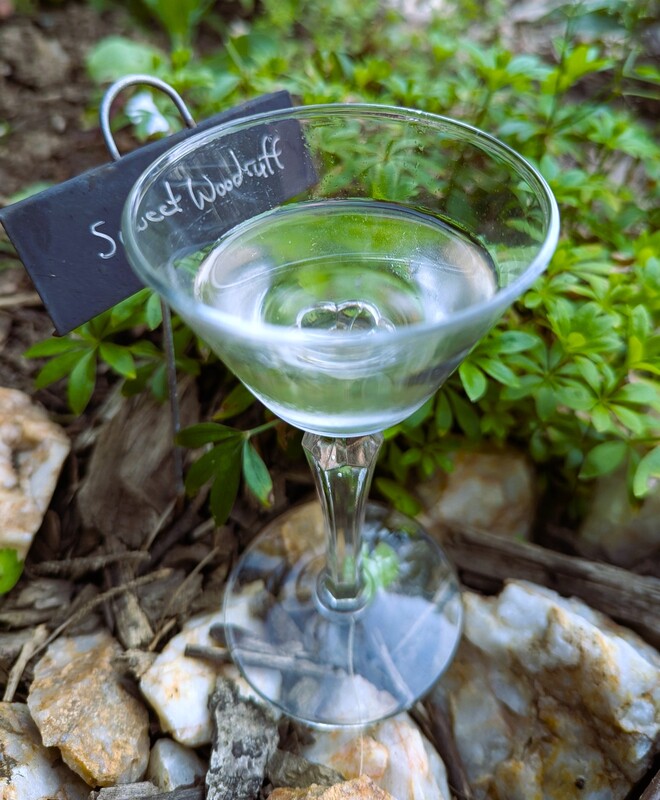|
The Plant That’s Been Charming Drunks and Undertakers Since Medieval times... There’s a fun woodland weed that you might want to know about. It's an unassuming little plant, with dainty white flowers and whorled leaves. However, it has been sneaking its way into drinks, pagan rituals, and your strange aunt’s potpourri for centuries, maybe even thousands of years. So, let’s unpack some of the sweet and sinister history of sweet woodruff (galium odoratum). A History Drenched in Death and Decay? Remember the good old Middle Ages? Life in Europe was an unpleasant parade of plagues, wars executions, rampant werewolfery (see a previous blog on a more recent case of wolfy mayhem) and no indoor plumbing. Growing all over the shadowy forests of Europe, this herb was the medieval undertaker’s best friend. It's interesting, vanilla hay-like scent—think ice cream that had been kissed by a recently fed guinea pig—made it perfect for stuffing into coffins or strewing over plague-ridden floors to mask the putrid stench of our ultimate mortality. It’s possible that it may have even been used to ward off those pesky evil spirits that seemed to be everywhere at the time, or at least help make them smell a bit less grave-y. By the Renaissance, woodruff was common in apothecary shops and brewed into teas to cure insomnia and melancholia or to more generally, “rebalance the humours”. Before you run outside and eat a bushel to help get over whatever disorder you’ve decided that you now suffer from because of tiktok videos, though, keep in mind that large quantities of coumarin (i.e., the most interesting and tasty part of the plant) could really mess with your liver. Moderation is the name of the game with this wee plant beastie. Fast forward to the 19th century, and this herb was slinking into aristocratic punch bowls, it’s probably most famous in May wine (Maibowle in German), Germany’s famous springtime punch consists of steeping sweet woodruff in white wine with strawberries. Woodruff’s strange, but pleasant flavor is the epitome of the transition from Spring to Summer. Sweet woodruff (aka waldmeister) is prized in German beer as well. It’s very popular to add waldmeister syrup (see recipe below) to Berliner Weisse beer. The latter is a low-horsepower wheat beer primarily associated with Berlin, known for its crisp, effervescence and pleasant sourness. Waldmeister syrup, with its soft flavor, perfectly balances out its tartness. However, be warned that artificial green colors are often added for dramatic effect. Craft distillers, those alcohol alchemists who pepper the countryside of every civilized locale these days, sneak woodruff into schnapps or liqueurs to elevate the exotic flair. Want to play hipster bartender yourself? Simple infuse woodruff into vodka with some (natural) red grenadine or black walnut bitters for a cocktail ingredient that screams gothic pretension. Just filter out the leaves unless you want your glass looking like a witch’s compost pile. How to Summon the Woodruff Fairies:
Woodruff is not easy. Its flavor isn’t ready made; it takes some coaxing to emerge. It’s best to harvest this herb on a misty morning in early June (like today, June 3, 2025), when it’s blooming. Snip stems with scissors so you don’t damage the plant too much and dry them for a day or so to allow the coumarin’s flavor to emerge and intensify. Please don’t skip this step unless you want a bland flavor and only the ghost of a vanilla aroma. Now, get rid of those stems, keeping only the slightly shriveled leaves. Boil up some simple syrup. When it’s made, take it off the heat, throw in some lemon slices for flavor (and to cool down the syrup a bit), and then add the woodruff. Once it cools to room temperature, cover and refrigerate for 1-2 days, strain, bottle, and store. You now have the makings of a great flavoring for beer, cakes, or craft cocktails. Sweet Woodruff Simple Syrup Recipe Ingredients: - 1 cup water - 1 cup granulated sugar - 2/3 cup fresh sweet woodruff leaves (washed and dried for 1-2 days) 1. Combine Ingredients: In a small saucepan, combine water and sugar. Stir over medium heat until the sugar dissolves completely. 2. Remove from the saucepan. Add the lemon slices 3. Add the dried sweet woodruff leaves to the saucepan. 4. Let the syrup cool to room temperature. Now, cover and refrigerate for 1-2 days. 5. Last, but not least, strain through a fine mesh sieve or cheesecloth to remove the leaves. Pour the syrup into a clean, airtight bottle or jar. Store in the refrigerator. Tips: - This syrup is great in cocktails, mocktails, lemonades, or even drizzled over desserts. - Ensure sweet woodruff is sourced safely, as it should be used in moderation due to its coumarin content.
0 Comments
Your comment will be posted after it is approved.
Leave a Reply. |
Categories
All
Archives
June 2025
|






 RSS Feed
RSS Feed